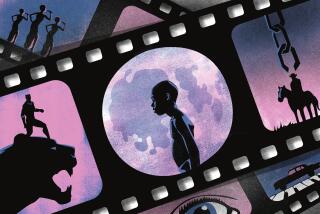Feedback: Letâs talk âblack-ishâ
âBlack-ishâ tackles a sensitive subject
The N-wordâs unsavory legacy has roiled the realm of classic literature going back decades before the advent of television [âThat word,â Sept. 20].
One of Joseph Conradâs pivotal works, âThe Nâ of the Narcissus,â was first published in 1897 under an innocuous title, âThe Children of the Sea: A Tale of the Forecastle.â Though the N-word had yet to be deemed offensive, the publisher insisted on that title change due to fear that a book about a black man would not sell.
By the mid-20th century, the N-wordâs usage evolved to pejorative application, as a definitively racist insult. By that time Conradâs book had been published for decades under his original title. Newfound aversion to the N-word led to cessation of its publication until early this century.
While some editions over the last decade feature the original title, in 2009 one publisher issued âThe N-Word of the Narcissus,â which excised all mention of ânââ in the text. Alas, that well-intended tack met with strident criticism from classic literature purists.
Perhaps discussion âblack-ishâ prompts by its âThe Wordâ episode will hasten the day when the N-word no longer provokes controversy.
Gene Martinez
Orcutt, Calif.
::
What I didnât see in the article was this: If blacks are offended because other ethnicities use the N-word, the solution is, blacks shouldnât use it either. It is just as offensive. It is no different than a black person calling a white person a âhonky.â If blacks donât want other people to use the N-word, than the buck stops with them. They canât use it either, in music, comedy or anything. Blacks canât have it both ways.
Marlene Drozd
Las Vegas
âRiverâ is not worth the time
What the hell is going on at the L.A. Times? Your art critic, Christopher Knight, devoted a full page [âCertainly Not Mainstream,â Sept. 27] critiquing a 5-hour and 18-minute film, âRiver of Fundament,â created by one, Matthew Barney, who wallows (in Knightâs words) in âCrushed auto parts swallowed in sludge, funeral barges, drawings of decayed factories and decomposed humanity, monuments to rebirth, open sewers flowing with feces.â
By the 21st century, these kinds of scatological fantasies are no longer âdisturbing and perplexingâ as the articleâs headline promises. Theyâre just boring, and even Knight finally finds this film âsluggish and inert.â Such stuff doesnât deserve the public attention their sick creators so desperately crave.
Al Ramrus
Pacific Palisades
Attendance, not dress, is the key
Letter writer Roger Waltonâs admonition that one must âshow some respectâ by dressing up for the opera or the theater reflects a fogyish, aristocratic, East Coast preoccupation with what is âdoneâ and ânot done.â Most Angelenos do not feel the need to indulge in such time- and money-wasting rituals. This is a city where studio execs greenlight hundred-million-dollar movies in jeans and sneakers and few restaurants with strict dress codes survive.
If Mr. Walton wishes to gussy up and don a penguin suit to attend a light comic opera, more power to him; I saw it several years ago in shorts and sandals. Among my friends in the performing arts, none gives a fig what you wear, as long as your buttâs in a seat, enjoying and supporting the arts.
Jordan Chodorow
Los Angeles
The complexity of migrant crisis
Re Charles McNultyâs essay on refugees [âDilemma Plays Like Greek Tragedy,â Sept. 20]: Avoid a deeper and solemn look at this tragedy at our own peril. âGrappling with complexityâ has become un-American.
June Maguire
Mission Viejo
More to Read
The biggest entertainment stories
Get our big stories about Hollywood, film, television, music, arts, culture and more right in your inbox as soon as they publish.
You may occasionally receive promotional content from the Los Angeles Times.










